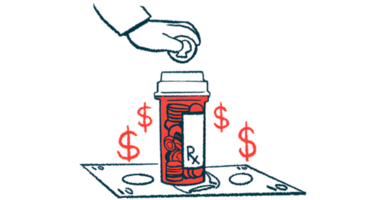Parkinson’s Is Sometimes a Matter of Learning How to Fail Well
Our brains can work against us, but we can learn resilience by retraining them

During my recent time away from writing weekly columns, I was able to reflect on how often I fail at using my self-management toolkit for this chronic illness. I fail at least once every day. Parkinson’s disease (PD) is a noisy, intrusive brat that demands to get its own way.
Some days are considerably worse than others. I’ve designed that toolkit to help myself. Following it is a full-time job, and then some.
Resilience is about overcoming failure. The Davis Phinney Foundation for Parkinson’s explains resilience with Parkinson’s in this way: “Fortunately, we all have the capacity to be resilient; however, it’s not something we automatically are. It’s something we can become through our thoughts and behaviors.”
Resilience can be seen as overcoming challenges by being positive or adjusting our expectations. I see resilience as about facing that broken morning every day and moving beyond. Some days, we will be successful. On other days, we may run headlong into the PD beast and success will be elusive and unobtainable.
Retraining the brain to think and act differently always involves failure — multiple times. Because of that, I’ve found it important to address the old voices — those conversations from years past with people or events that strangled my self-worth by convincing me I didn’t do something right, I didn’t make a better choice, and I’m a “bad person.” The old voices have a way of turning into old habits.
Old habits are the brain’s way of seeking familiar, well-trodden paths through the forest. Retraining the brain is like going off a known road and seeking out a new way through the forest of ignorance — especially if the new road requires hacking through an overgrowth of unhealthy habits, occasionally getting lost or losing our bearings in unknown territory. But such habits provide no long-lasting assistance and are a distraction to developing resilience.
My PD brain needed more powerful resilience because the noisy Parkinson’s brat is constantly throwing temper tantrums and interrupting my life.
During the column-writing hiatus, there were many opportunities to try strategies to strengthen my resilience. That noisy brat just wouldn’t shut up, leaving ancient echoes as ear worms incessantly nagging.
Most of that nagging is fear of failure. My generation was (hopefully) the last to endure systemic corporal punishment as parents routinely spanked their children for even the smallest infractions. Being a creative child and slightly rebellious, my old voices said that failing to do something right would result in a painful admonition.
The failure-pain connection results in my seeking a desire to escape, deflect, and deny. A whole slew of mental and pleasure-seeking habits is tied into these ineffective failure-coping strategies.
Ashamedly, I’ve spent too much time and energy running around grasping at anything that might resemble a pleasurable experience. This last month, I started using the practice of ordinary calmness as an alternative.
Building a new road
My second book, “Possibilities with Parkinson’s: A Self-Management Toolkit,” consists of brain rehabilitation workarounds for some challenges that Parkinson’s patients face. This would equate to building that new road through the forest. We leave the well-traveled highway and move to a new circuitry of neural pathways. This is referred to as neuroplasticity.
In the 2013 abstract “The role of neuroplasticity in dopaminergic therapy for Parkinson disease,” from the journal Nature Reviews Neurology, researchers proposed that “Understanding such plasticity could provide novel therapeutic approaches that combine rehabilitation and pharmacotherapy for treatment of neurological and psychiatric disorders involving basal ganglia dysfunction.”
The researchers identify the difference between the prevention of degeneration in Parkinson’s and the application of neuroplasticity for brain rehabilitation. However, because of the progressive nature of Parkinson’s disease and the fact that the disease directly affects our ability to focus attention, the workarounds don’t present immediate relief. That quick-fix relief from pleasure consumption is not the aim of neurological rehabilitation. This is a long-term, day-by-day process.
I have found that this is where the practice of daily ordinary calmness becomes quite influential.
The ability to focus attention on being mindful and calm allows me to direct my thinking and actions in a way that strengthens resilience. At the same time, it gives me small steps to keep me moving forward to achieving brain rehabilitation and rewiring. Knowing I have this control helps me to continue to show up every day and face the possibility that I might fail. Then again, I might succeed.
I can enjoy the moments when I do succeed.
A note to our readers: September was a month of respite, vacation, and making a dent in the list of those nagging home projects. We appreciate your patience and hope you rejoin us as we return to our weekly column writing. Even with the noisy brat in the room, we still got our new book manuscript to the publisher!
Note: Parkinson’s News Today is strictly a news and information website about the disease. It does not provide medical advice, diagnosis, or treatment. This content is not intended to be a substitute for professional medical advice, diagnosis, or treatment. Always seek the advice of your physician or another qualified health provider with any questions you may have regarding a medical condition. Never disregard professional medical advice or delay in seeking it because of something you have read on this website. The opinions expressed in this column are not those of Parkinson’s News Today or its parent company, Bionews, and are intended to spark discussion about issues pertaining to Parkinson’s disease.








Desmond Veale
I am very interested in this topic.. Although my life was fulfilling, My brain seems tempt me to negative about my past.
Des Veale
jean mellano
Very powerful column!
Mike
Dr.C.
Welcome back. I can’t wait to order your new book. “Possibilities with Parkinson’s” is a source of inspiration for me. Living with the Beast we call Parkinson’s can only be a challenge. There are lots of resources including your writings that aid me in the process. Just last night my first order of Neuralli arrived. Jesus has helped me to be proactive in my struggle. This morning I spoke with my “Mentor” Justin from Norton Health Care. I have added 2 on-line exercises from Norton to my exercise regimen. Like you Dr C I owe it to my self and my family not to just give in. Blessings,Mike
Ana Maria Tamayo
Welcome back Dr C.
I missed your columns
Saludos desde Perú.